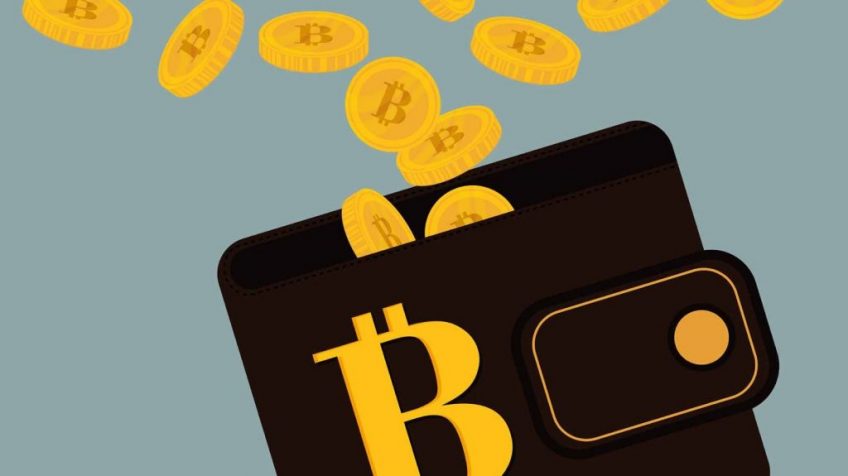Bitcoin is not your regular currency. It is a digital currency, and to safeguard it you require a Bitcoin Wallet. You can store Bitcoin anywhere, and there are several wallets, each of them different from the other in terms of security, ease of use, convenience, and so on. And to prove your ownership of your Bitcoins, you need a private key for your Bitcoin wallet. The wallet and the key are two things you need to hold on to for the security of your Bitcoins.

There are several types of Bitcoin Wallets catering to different types of requirements. These are given below:
Mobile Wallet
If you are using Bitcoin regularly to pay for goods or to trade, then a mobile wallet is essential. Having an app to store your private key will allow you to pay using Bitcoin from your mobile phone directly. Some apps allow the tap-against-the-terminal feature, which prevents you from having to share information.
Mobile wallets use a simple verification technology. Although mobile wallets are convenient to use, they are easily attacked by hackers. Besides, there is a good chance of wallet theft if your mobile device is stolen.
There are many Bitcoin mobile wallets available for Android and iOs devices. Some examples are Freewallet, Edge, Atomic Wallet, Lumi Wallet, Blockchain Wallet, etc.
Desktop Wallet
These are downloaded and installed on your computer. They store your private key in the hard drive and are secure as no third-party can access it. This type of Bitcoin wallet may be useful for users who trade in smaller amounts. Atomic Wallet, Electrum, Bitcoin Core, Exodus, etc. are examples of some desktop wallets that run on Mac OS, Windows, and Linux.
Web Wallet
A web wallet allows you to access your Bitcoins from any device that has an Internet connection. As your key gets stored on the web, it may be compromised and your funds can be accessed by the organizations running these websites. These e-wallets work through exchanges, and there are some which have suddenly stopped their services. Some examples of the convenient web wallets are Circle, Lumi Wallet, Coinbase, Blockchain, etc.
Hardware Wallet
Strict security features make the hardware wallet very popular. Here, your private key is stored in a hardware device that has some security features. This is the most secure place to keep your Bitcoins.
These wallets are immune to virus attacks, and the funds cannot be shifted out of the device. Also, the software is available in the open domain. Some of these hardware wallets come with a screen that displays the wallet information. Trezor and Keepkey are two such wallets that are available at $ 99 each.
Physical Bitcoin
Physical wallets are preloaded with Bitcoins and have a hidden private key. The private key is covered by a tamper-proof hologram. The first one of these wallets was Bitbill that looked like a credit card. After this, the physical Bitcoin wallets were shaped like a circular metal coin. The most popular of these was Mike Cadwell’s Casascius that was introduced in 2011. Such wallets are one-use ones and after redemption, it loses its value.
If you want to do any offline transaction with Bitcoins, these physical wallets are handy. Presently, physical Bitcoin wallets face ban in some countries that consider it as fake money. Financial Crimes Enforcement Network banned Casascius in November 2013.
Bank
To date, banks don’t accept cryptocurrencies due to a lack of transparency. This initiated the setting up of a Bitcoin Crypto Bank. It works on the Bitcoin market and accepts Bitcoin deposits. It assures to provide a user with a safe and certified platform for storing and managing Bitcoins.
Paper Wallet
A paper wallet is a type of a document that consists of a public address for storing your Bitcoins and private key. You can also transfer or spend your Bitcoin stored in this public address. It uses QR codes that get scanned fast. As it stores the private keys offline, it is safe from the attacks of hackers.
You have to use a secure operating system like Ubuntu, or operate from a DVD or a USB flash drive for ruling out tracking by malware. It is a small piece of paper that must be protected in a plastic bag or laminated. You should also use an offline printer to print your paper wallet.
Security Issues of Bitcoin Wallets
Various security issues need to be addressed before the Bitcoin wallets can be used widely. Though these are a necessity, vulnerability to viruses, malicious software, and Trojan attacks may lead to theft of your Bitcoins. Some of these wallets work with digital exchanges that may walk away with all your funds. You can also lose the device and all your digital currencies with it.
Precautions That Can Be Taken
It is advised that you should avoid using wallets that require Internet access. You should use offline storage alternatives to protect your Bitcoin balance.
You should double-check everything before operating your wallet. You can also receive fake emails that might look like BlockWallet, and it is BlockWalet. And if you approve it, all your Bitcoins might disappear.